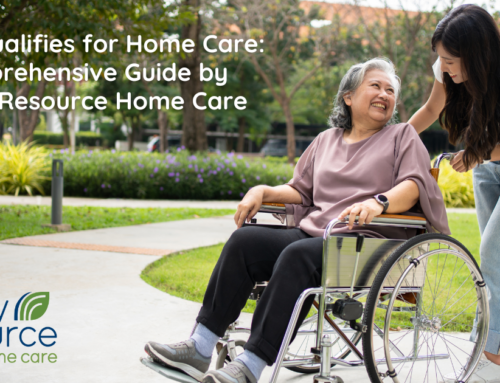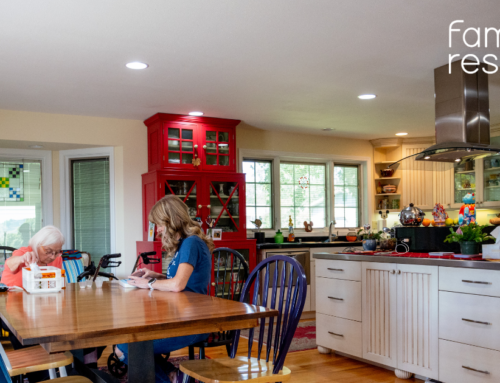In-home senior care can successfully monitor and help dementia behaviors. It often takes a while to realize that it takes more than one person to help support a family member with dementia. Behavioral changes often accompany dementia. We may wonder where our loved one’s “old self” has gone, and this can be difficult to adjust to and deal with. The changes we see are due to their losing neurons in parts of the brain, and the behavior reflects which parts of the brain are being affected.
What behaviors within in-home care are affected by the loss of neurons?
The frontal lobe affects the ability to focus, pay attention, motivation, personality, and impulses. This may reduce your loved one’s ability to pay attention, feel less motivated, and come across as rude or insensitive.
As dementia affects the ability to respond, it is logical that a dementia patient also reacts differently to the environment. Because they may be forgetful, they can often have difficulty following conversations. Logically, this can be frustrating as they don’t understand what is going on and noises, crowds, and other activities can exacerbate the frustration due to overstimulation.
Ways to calm stressful behaviors
Your loved one relies on emotional cues and may mirror what your emotions are, so it is important to remain self-aware of what emotions you are displaying. It is important to help them maintain low-stress levels for their health. It is helpful to engage visual stimuli before giving a verbal response. Following cues in this particular sequence works well: visual, verbal, and touch.
Not only do behaviors change with loss of neurons but also infection and pain. Unable to explain or describe the pain, dementia patients may react similarly as they do to overstimulation—angry or shut down. In a similar fashion, urinary tract infections, lack of or poor sleep, constipation, and medications can affect behavior.
What can I do to help mitigate negative behavior or reactions?
- Consult your loved one’s health care provider to ensure you understand the whole picture—infection, pain, medication, etc.
- Not all behaviors require medication and can cause negative side effects.
- Try to figure out what might be causing the behavior. Are there triggers or patterns in the behavior?
- Consider the behavior as their way to communicate and be patient.
- Determine if the behavior is dangerous versus annoying. Dangerous behavior would be the patient walking outside of the house while angry. Being proactive would be installing locks or walking with them to distract them. If they are angry but stay inside, this would not be necessarily dangerous.
- Create a daily routine as routine is a source of comfort for dementia patients.
- Implement acceptance and patience. They are not intentionally trying to be frustrating. When you become frustrated, step aside and take time to calm yourself.
- Join a support group to learn various coping strategies or successful methods that worked with similar patients.
It is important to understand your loved one, unlike a small child, has lived a long life and is used to being treated with respect and dignity. The feelings of independence and pride are deeply ingrained. We need to be especially sensitive to their emotional needs regardless of whether we think it’s logical. Determining what is and what is not in our control will also help calm feelings of frustration. Additionally, it helps us allow ourselves to make sure we don’t become too emotionally drained or physically unable to take care of our loved one. Caring for a loved one with dementia is no easy task, but it can be done and with exceptional support!






